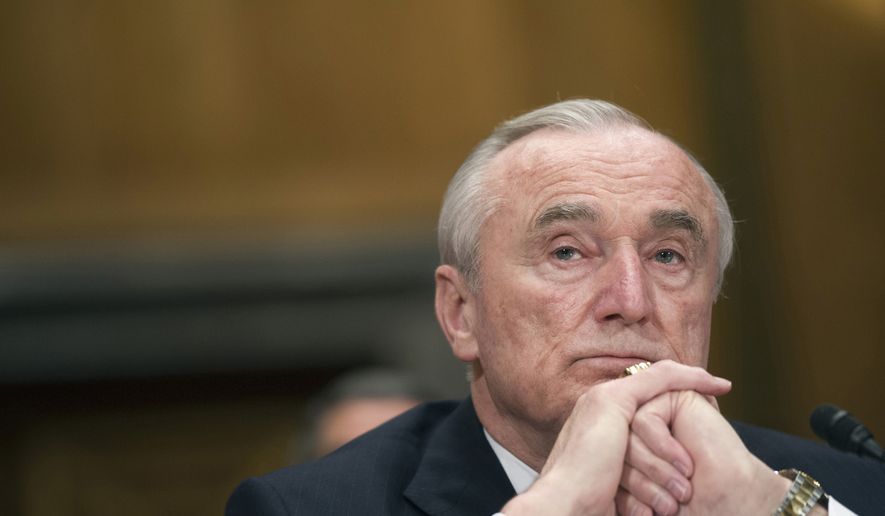OPINION:
A policeman’s lot, as Gilbert and Sullivan reminded us, is not a happy one, and the lot of New York City may not be a happy one, either, in the wake of the departure of William Bratton as the police commissioner.
Mr. Bratton, a veteran of policing not just New York City but of Boston and Los Angeles before that, represents the best of what being a policeman in America means. He is the living refutation of the campaign of calumny led by those who exploit the relatively rare incidents of police brutality and discrimination against minorities to make war on the blue lives that matter.
It was under Mr. Bratton’s leadership that Rudy Giuliani, as the mayor, set out a decade ago to tolerate no violations of the law, however minor. This was the “broken window school” of law enforcement. Small crimes, such as breaking windows for sport, eventually lead to the breakdown of civil order, and Mayor Giuliani’s campaign to eliminate minor infractions of the law as well as more egregious crime, succeeded spectacularly. Mr. Giuliani made his successors look good.
Some of the methods, such as stop-and-search, have been criticized as an affront to civil rights, but such methods, kept in their proper place by commanding officers like Mr. Bratton, put an end to the winking at crime in the 1960s and 1970s that threatened to make New York City ungovernable and uninhabitable. How soon we forget.
When cops go bad they must be punished, swiftly and severely. But phony abuses, as exploited by sensationalist and twisted media, undermine what Mr. Bratton and officers like him have done to maintain order and civility in the complicated urban culture.
Some politicians have joined in the undermining by courting radical and pernicious groups like “Black Lives Matter.” Of course black lives matter, no less (and no more) than “all lives matter,” and Mr. Bratton’s retirement comes as the campaign against the police and good order quickens.
New York’s Mayor Bill de Blasio appointed James O’Neill, the chief of the police, as Mr. Bratton’s successor, effective next month, as Mr. Bratton asked him to do. Mr. O’Neill was promoted from within the department. “I have worked the last three years to give [the mayor] that option,” Mr. Bratton says. “He has intimate exposure to all of my leadership, so I think it was easy for him to make that decision.”
Mr. O’Neill is “an architect of community policing,” which is sometimes regarded as the euphemism for weaker policing, but his aides insist that what they call “aggressive quality-of-life policing” will continue. The prospects of Mayor de Blasio, who is locked in a tight re-election campaign largely due to doubts about his toughness — the business community is particularly wary — are tied to Mr. O’Neill’s success as the new commissioner. The mayor’s approval ratings have taken a recent dive.
Mr. Giuliani says Mr. Bratton “was the de Blasio administration’s one saving grace and they just lost it.” Kathryn Wylde, president of the Partnership for New York City, a business advocacy group, says her members overwhelmingly supported Mr. Bratton and look warily at his successor. “This puts [Mayor de Basio] in a position of having to be more forceful in standing up for the principles of law and order that [Commissioner] Bratton represented.” Real life, after all, is no operetta.




Please read our comment policy before commenting.